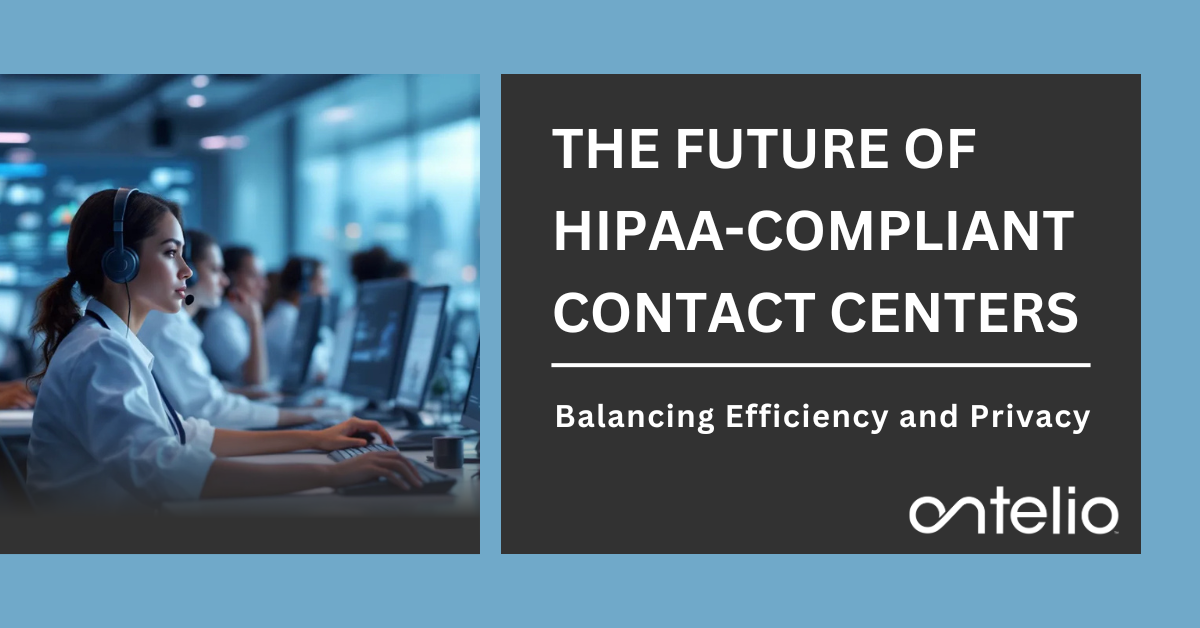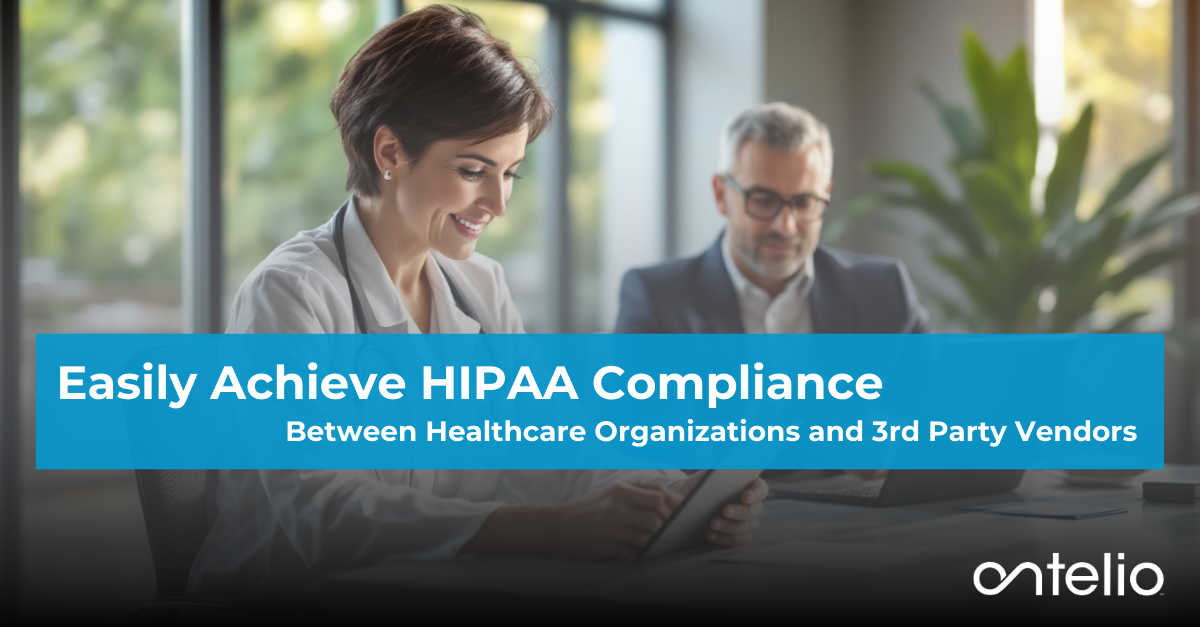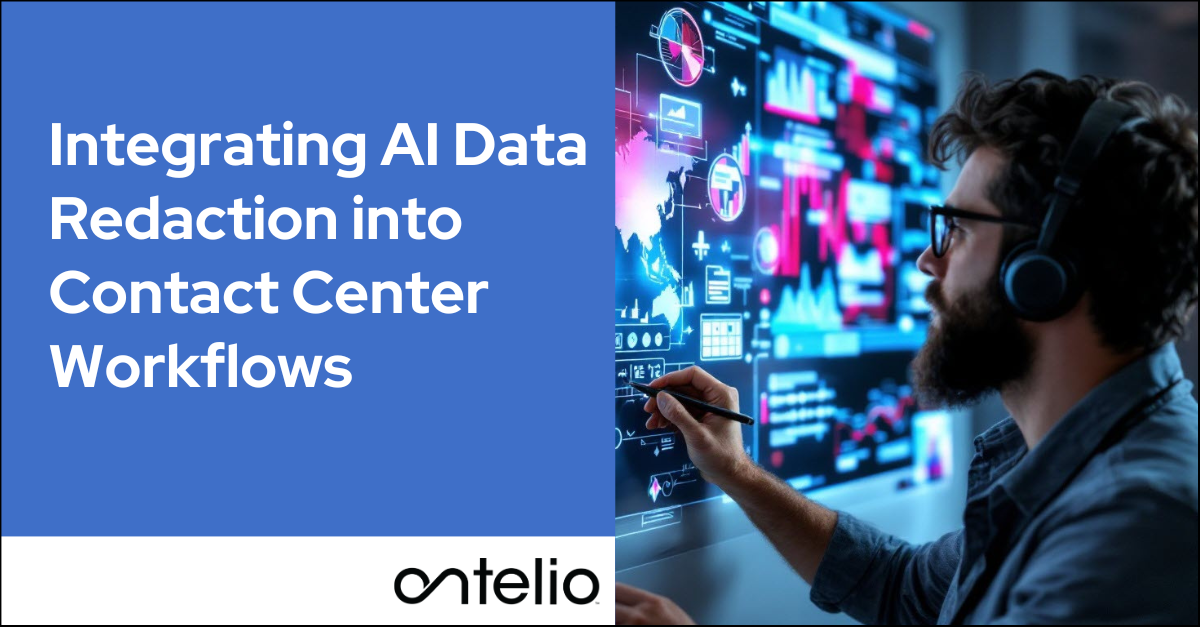HIPAA Compliance Between Healthcare Organizations and Business Associates
In the healthcare industry, managing and safeguarding Protected Health Information (PHI) is not only a regulatory necessity but also a vital...

Healthcare communication channels, particularly those operated by contact centers, are essential for managing patient interactions such as appointment scheduling, billing inquiries, test result notifications, and telehealth consultations. Each of these touchpoints often involves the handling of PCI and PHI, which requires organizations to follow strict HIPAA regulations. HIPAA mandates that healthcare organizations implement administrative, technical, and physical safeguards to ensure the confidentiality, integrity, and availability of PHI. However, balancing these compliance requirements with the need to provide efficient and responsive patient service presents significant challenges.
For instance, patient calls might involve sensitive discussions about medical histories, treatment plans, or billing details—all of which are protected under HIPAA. At the same time, healthcare organizations must minimize call wait times and deliver quality service to maintain patient satisfaction. Achieving this balance is particularly challenging as healthcare providers face increasing cyber threats and limited resources. According to a report from Critical Insight, healthcare attacks impacted 45 million individuals in 2021, a steep rise from previous years. These breaches not only compromise data but also disrupt services, illustrating the urgency for secure yet efficient communication systems.
The threat landscape is exacerbated by the high value of PHI. Cybercriminals seek to monetize these records through ransomware or by selling them on the dark web, where stolen healthcare data can fetch high prices due to its longevity and rich detail. Ransomware attacks, in particular, have increased, accounting for a significant portion of healthcare breaches, and they often result in service disruptions, delayed patient care, and financial penalties. For healthcare providers, the challenge is to implement solutions that can protect data without compromising the efficiency of patient services.
As the complexity of healthcare communication grows, AI-driven technologies like Ontelio’s automated redaction engine are emerging as crucial solutions for managing PHI securely and efficiently. Traditional methods of data redaction often rely on simple pattern matching, which can be error-prone and labor-intensive. These methods may fail to recognize sensitive information presented in different contexts or formats, leading to either over-redaction, which removes valuable information, or under-redaction, which leaves organizations exposed to compliance risks.
Ontelio’s multi-stage redaction engine addresses these shortcomings by employing advanced AI that understands the context of data. This technology can differentiate between sensitive and non-sensitive information, ensuring that essential details necessary for quality control or service analytics are preserved while PHI is securely redacted. For example, it can identify and redact patient names, birthdates, Social Security numbers, and other identifiers without compromising the overall integrity of the call transcript or chat log. This approach not only enhances accuracy but also minimizes the risk of human error, which is a common issue in manual processes.
The speed of Ontelio’s technology is another significant advantage. The system can redact PHI in real-time or near real-time, allowing healthcare providers to process interactions almost immediately while maintaining compliance. This capability is crucial for maintaining operational efficiency and ensuring that compliance measures do not slow down service delivery. In a healthcare environment where prompt response times are essential, such automation can dramatically improve patient outcomes while ensuring regulatory adherence.
Healthcare organizations must navigate the delicate balance of delivering efficient patient care while safeguarding sensitive information. This is particularly challenging given the increasing regulatory requirements and cyber threats faced by the industry. Automated systems like Ontelio’s redaction engine play a critical role in supporting this balance. By automating PHI redaction, the system allows healthcare staff to focus more on patient interactions and less on compliance tasks. This not only speeds up response times but also enhances the quality of service provided.
Moreover, automation reduces the administrative burden on healthcare organizations. Manual compliance processes are time-consuming and often require extensive training and monitoring. By contrast, AI-driven systems can operate continuously without human intervention, ensuring that PHI is consistently protected across all interactions. This capability enables healthcare organizations to streamline their operations, improve service efficiency, and maintain a high standard of patient care without compromising privacy.
To successfully implement HIPAA-compliant operations in contact centers, healthcare organizations should integrate several best practices:
Automated Monitoring and Redaction: Adopting AI solutions that continuously monitor and redact PHI ensures consistent compliance across all communications. Automating these processes helps minimize errors and reduce the manual workload associated with compliance checks.
Vendor Management and BAA Compliance: The increasing number of breaches involving business associates highlights the importance of monitoring third-party compliance. Healthcare organizations must ensure that all vendors and partners handling PHI have proper Business Associate Agreements (BAAs) in place. These agreements should define compliance responsibilities clearly, ensuring that business associates adhere to HIPAA regulations. Regular assessments and audits of vendor practices are crucial to mitigate risks and avoid liability.
Access Control Measures: Implementing strict access control policies is essential for ensuring that only authorized personnel can access unredacted data. This reduces the risk of unauthorized access or data breaches, which are common when sensitive information is widely accessible. Ontelio’s technology supports these measures by redacting PHI before storage or analysis, minimizing the chances of exposure.
Regular Audits and Compliance Checks: Automated systems should provide comprehensive audit trails and compliance reports. These tools simplify the auditing process and help organizations identify potential compliance gaps before they result in breaches. Regular internal audits and continuous monitoring can further enhance compliance efforts and reduce the risk of penalties.
Data Minimization Strategy: HIPAA requires that organizations follow the principle of “minimum necessary” when handling PHI. A data minimization strategy involves retaining only the information essential for healthcare operations and redacting or deleting unnecessary data. Ontelio’s solutions support this approach by ensuring that only essential data is retained, thus reducing the volume of sensitive information that could be compromised in a breach.
The consequences of PHI breaches are severe, both for the affected individuals and the healthcare organizations involved. For example, the Medical Informatics Engineering breach in 2015 compromised nearly 3.5 million patient records due to unauthorized access. The breach resulted in significant fines and legal penalties due to the organization’s failure to conduct a comprehensive risk analysis as required by HIPAA. Such breaches not only incur financial costs but also damage the organization's reputation and erode patient trust.
Another prominent breach occurred with Banner Health, where over 3.7 million records were compromised through unauthorized access to payment processing systems. This breach highlighted the vulnerabilities associated with third-party vendors and the importance of rigorous vendor management practices. The financial impact of these breaches extends beyond fines; healthcare organizations often face legal settlements and the costs of implementing additional security measures, which can be substantial.
In 2021, business associates played a role in numerous data breaches, highlighting the critical need for robust third-party management and compliance monitoring. With business associates increasingly involved in healthcare data handling, healthcare organizations must proactively manage these relationships to mitigate risks and protect patient information.
Ontelio’s technology is specifically designed to support healthcare organizations and their business associates in managing compliance and reducing cybersecurity risk. By automating the detection and redaction of PHI, Ontelio ensures that sensitive information is securely processed and stored, significantly reducing the likelihood of data breaches. This approach not only streamlines compliance efforts but also minimizes the administrative burden on healthcare staff, allowing them to focus more on patient care.
Additionally, Ontelio supports the development and management of Business Associate Agreements (BAAs) by integrating compliance requirements directly into its systems. This integration ensures that healthcare providers and their business associates comply with HIPAA standards, reducing potential liability and strengthening trust between organizations and their partners. Ontelio’s solutions also include comprehensive vendor monitoring capabilities, which help healthcare providers track compliance across their vendor network, minimizing risks associated with third-party data breaches.
Implementing Ontelio’s technology provides healthcare organizations with a proactive approach to cybersecurity and compliance management. By automating and standardizing the redaction of sensitive information, healthcare providers can reduce their risk exposure, safeguard patient data, and enhance operational efficiency, ultimately improving both patient outcomes and organizational performance.

In the healthcare industry, managing and safeguarding Protected Health Information (PHI) is not only a regulatory necessity but also a vital...

Contact centers must efficiently manage vast amounts of customer interactions while ensuring compliance with strict data privacy regulations. AI...

8 min read
With the increasing adoption of digitization in the healthcare sector, the management and protection of personal health information (PHI) has...